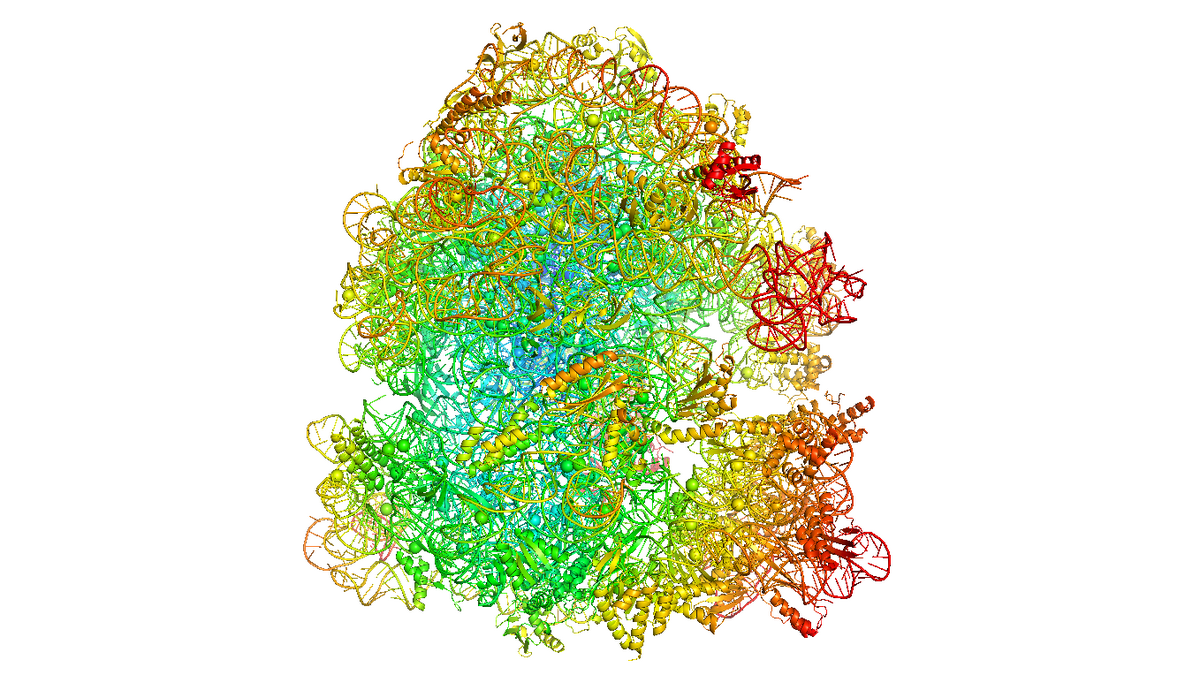Gates Foundation to fund research on antibiotic resistance

ASU Professor Banu Ozkan is working on a team of researchers who aim to find alternative pathways to address the urgent need for new antibiotics. Ozkan's contribution to the research project focuses on understanding the dynamics of ribosomes in dormant bacteria. Illustration courtesy Banu Ozkan
Antibiotic resistance, what happens when germs develop the ability to defeat the drugs designed to kill them, is a growing concern among scientists today.
When bacteria become resistant to antibiotics, common infections can be harder or impossible to treat, leading to longer illnesses, more severe infections or higher mortality rates.
Using a combination of theoretical and experimental techniques, Arizona State University Department of Physics Professor Banu Ozkan and a team of researchers have been working to find new ways to cope with bacterial infections.
The team, which includes Gürol Süel, the project’s principal investigator from the University of California San Diego, and Bozhi Tian from the University of Chicago, recently received a grant from the Bill & Melinda Gates Foundation to further their research.
“Understanding antibiotic resistance is a big problem now because it’s hard to come up with new antibiotics, and bacteria are getting smarter to current antibiotics,” said Ozkan, director of the Center for Biological Physics at ASU. “This research would help us create new and novel ways to control or kill bacteria as an alternative to antibiotics.”
When bacteria enter a dormant state, they are not actively reproducing. This helps them survive harsh conditions such as lack of nutrients, extreme temperature or antibiotic exposure.
After conditions become favorable again, bacteria wake up and resume normal activities of causing infections or spreading antibiotic resistance.
“A dormant state is interesting. They’re alive but have zero metabolism,” Ozkan said. “They can stay like that for a long time and then turn back and become alive again. We want to understand how bacteria go from a dormant to waking state.”
To do so, the researchers are developing miniature devices capable of delivering electric signals to bacteria to understand how bacteria exit dormant states and how they can be manipulated. This work may in the future reveal new ways to cope with bacterial infections.
Ozkan’s contribution to the research project focuses on understanding the dynamics of ribosomes in dormant bacteria.
Ribosomes, essential cellular machines responsible for making proteins, play a crucial role in regulating bacterial activity and are targets for many antibiotics.
“Ribosomes stick together, forming what we call 'ribosome hundreds,' halting protein translation. Understanding the dynamics of their association and dissociation, particularly with novel mechanisms like electric stimulation, is crucial,” Ozkan said.
The team hopes to find alternative pathways to address the urgent need for new antibiotics.
“This is a great opportunity. The different strengths of all three of us working together to address this issue wouldn’t happen without receiving funding for this research,” Ozkan said.
More Health and medicine

Health Solutions graduate trains to become a better health educator
Editor’s note: This story is part of a series of profiles of notable fall 2024 graduates.At almost 15 years old, Robyn Colao, who is now graduating from the health sciences program at the …
ASU team part of nationwide study looking at Type 2 diabetes in youth
Near the end of an interview in which he talked about the work his team will be doing to tackle the rise in Type 2 diabetes among youth, Arizona State University Professor Gabe Shaibi answered why…
Leading the way in wellness: ASU highlighted in The Princeton Review's 2025 Mental Health Services Honor Roll
Being a college student isn’t easy — navigating new routines, people and places can be a challenge, especially if the right support system is not in place. That's why Arizona State University is a…
